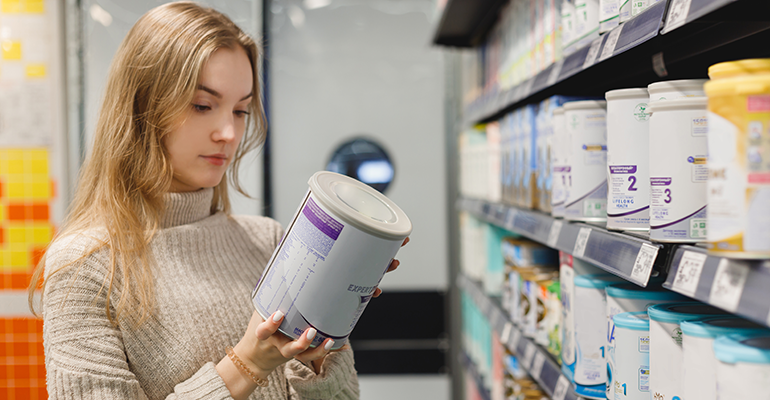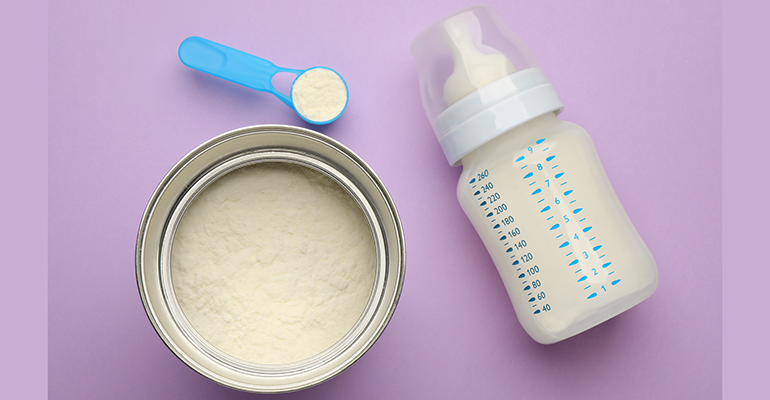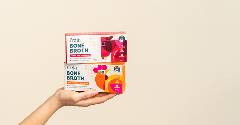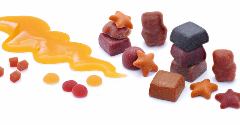News
Most infant formula products make unfounded health claims
7 Mar 2023
Most health claims made on baby formula products have little or no supporting evidence, according to a recent study by international researchers who say that stricter marketing regulations are “urgently needed”.
Published in The British Medical Journal (BMJ), the study included an analysis of the health and nutrition claims made on infant formula products in 15 countries, and the validity of the evidence used to support them.

More than 750 products were assessed that made 31 different types of health claims. The most common assertions were benefits of brain development, immunity, and growth in young infants, and most claims were backed by little or no high quality scientific evidence, according to the report.
“Health and nutrition claims about infant formula are controversial because they can enhance the perceived benefits of formula over breastfeeding and thereby undermine breastfeeding,” the researchers said, noting that human breast milk is the optimal source of infant nutrition.
Popular ingredients, weak evidence, trial bias, and industry affiliation
To highlight the benefits promised, the researchers said the products they studied tended to cite popular ingredients such as long chain polyunsaturated fatty acids, prebiotics, probiotics, synbiotics, and hydrolysed protein.
The study found that of the products with at least one health claim, 74% did not provide any scientific reference to support the claim and 26% did provide support. However, not all references were equal. Some linked back to findings from clinical trials, but many others only linked back to reviews, opinion pieces, or other types of unscientific research.
Additionally, 90% of the claims that cited registered clinical trials carried a high risk of bias. And 88% of the registered trials were authored by people who either “received formula industry funding or were directly affiliated with industry,” the researchers said.
“Despite previous attempts to change the landscape of infant formula marketing undertaken by multiple reputable organisations, […] progress in regulating infant formula claims is slow,” they said.
“Although advances have been made in implementing mandatory compositional and information requirements for infant formula, transparency is still lacking about health and nutrition claims linked to infant formula.”
The researchers said that the findings of the study “strengthen [their] previous call for a ban on health and nutrition claims for breast milk substitutes.”
‘Exploitative’ formula marketing: Calls for greater regulation
This report adds to a growing list of concerns about the lack of regulation in the infant nutrition industry. The World Health Organization (WHO) recently assessed the impact of infant formula marketing strategies around the world.
 © iStock/Liudmila Chernetska
© iStock/Liudmila Chernetska
A new three-paper series published in The Lancet also researched the “exploitative” formula marketing tactics driven by political interference and industry lobbying that “seriously jeopardizes the health and rights of women and children.”
“It is clear that most parents are exposed to formula marketing during pregnancy or the postnatal period and are often misled by claims,” the authors of the BMJ study said.
“We have previously suggested that health and nutrition claims for products regarded as breast milk substitutes should not be permitted. These products are so important for the infants who need them, and any true advances in breast milk substitute composition should be made available to all infants receiving relevant products,” they said.
Much of the recent research recommends greater support for breastfeeding where possible, including through improvements to healthcare and social protection systems like guaranteed paid maternity leave.
“We have identified a high prevalence of claims on infant formula products in multiple countries that seem to have little or no scientific substantiation,” the BMJ researchers concluded.
“These findings support calls for a revised regulatory framework for breast milk substitutes to better protect consumers and avoid the harms associated with aggressive marketing of such products.”
Related news

Bone broth: From old-fashioned to en vogue
24 Nov 2025
OXO’s entry into bone broth has turned the spotlight on this small but high-performance category – and there is still scope for growth, especially in the area of GLP-1 support.
Read more
Matcha madness: Why green is this year’s hottest colour
19 Nov 2025
Five years ago, it was a struggle to find matcha outside of Japan. Now it seems to be popping up everywhere, from coffee shops to supermarket shelves.
Read more
How younger consumers are redefining ingredient choices and rejecting brand loyalty
18 Nov 2025
Gen Z and millennial consumers’ preferences for transparency, functionality, and purpose are “redefining the very nature of consumption itself”, says SPINS.
Read more
Hybrid formats and flexible positioning to disrupt category norms in 2026
17 Nov 2025
Trend forecasters expect food and drink to move more fluidly across occasions, functions, and formats as consumers seek versatility, novelty, and convenience.
Read more
Empowering innovation in fortification and colouration
13 Nov 2025
Divi’s Nutraceuticals offers a large portfolio of innovative, high-quality ingredients for foods, beverages, and supplements, with bespoke solutions and expert support for product success.
Read more
Predictive maintenance redefines powder mixing reliability
13 Nov 2025
Mill Powder Tech's smart control systems harness real-time data to help the food and biotech sectors achieve zero downtime and smarter output, alongside rigorous GMP standards and ambitious ESG goals.
Read more
From fruit to functional solutions: Meet Paradise Fruits at Fi Europe in Paris
13 Nov 2025
Paradise Fruits Solutions and Paradise Fruits Health will showcase their combined expertise in delivering innovative, fruit-based solutions to the food and beverage industry at the upcoming Fi Europe trade show (2-4 December 2025, Paris).
Read more
Danone highlights digestive health as potential ‘tipping point’ for food industry
13 Nov 2025
Danone is betting on a food industry “tipping point” that will bloat the market for healthy products, particularly those related to gut health.
Read more
Bord Bia presents Irish dairy ingredient suppliers at Fi Europe
6 Nov 2025
Dairygold Co-operative Society, The Carbery Group, and Ornua Co-operative: Meet with sustainable producers of Irish dairy ingredients at Food ingredients Europe 2025, Hall 7.2 Stand M18.
Read more
Ingredient quantities mislabelled on popular protein bars, independent tests show
5 Nov 2025
Some popular protein bars contain more fat, carbs, and/or sugars than claimed on their labels, independent nutrition testing reveals.
Read more